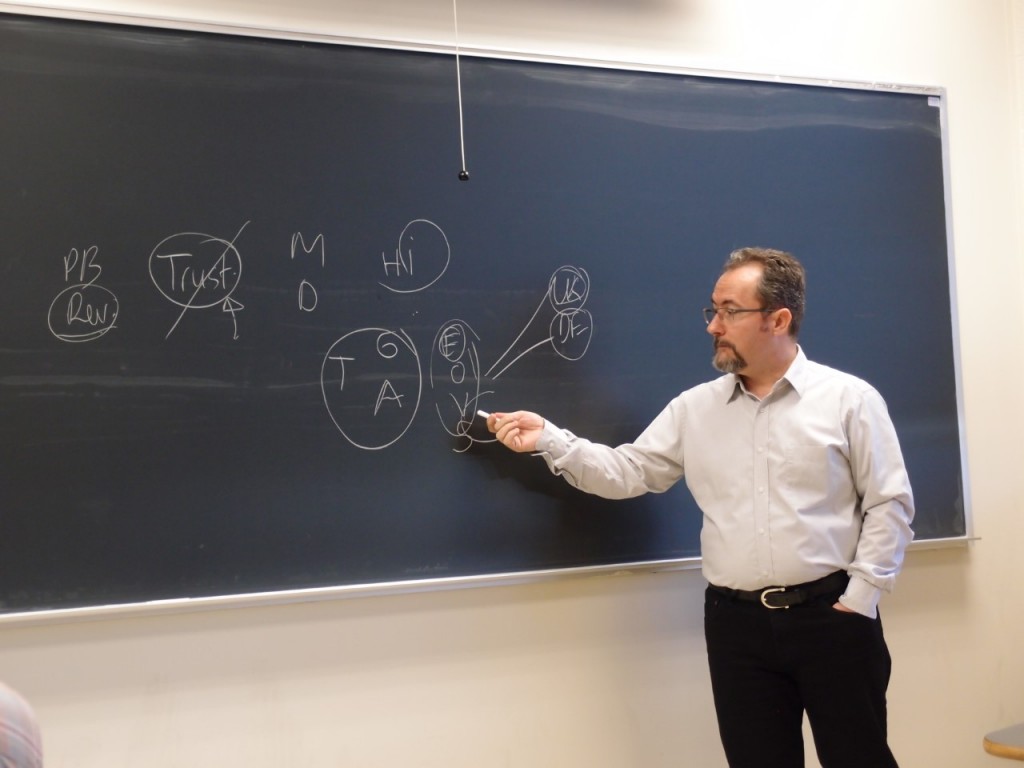by Natalia Zotova, OSU PhD Candidate

On Tuesday, 25 October, Dr. Ibrahim Sirkeci came to Anthro 5626 “Culture and Economic Life” class. He gave a talk on his research, where he aims to bridge migration and marketing through the framework of transnational marketing. Dr. Sirkeci argues that migration is always a challenging event for individuals who move. When people move they lose their social networks, or they might become less strong as a result of relocation. This alters consumer behaviors. In communities of origin social networks are helpful because they employ the notions of trust in interpersonal communication; and they are easy to reach. Social networks mean that you can ask family, kin or friends for advice and help when you need to fix a problem. As such, social networks facilitate consumer choices and save people time and money. When someone moves, he/she might not employ resources of social networks for advice and support; and dealing with small and big problems becomes much more challenging. Being stripped off networks, movers spend more time looking for solution and probably spend more money on it.
Dr.Sirkeci also spoke about food tastes, and their meaning for people who move. When a person grows up in a specific culture, food tastes become deeply embedded. Upon relocation, movers start looking for familiar food items and know tastes in a new place. A simple question like “Am I able to find a proper Feta cheese or good coffee?” becomes meaningful for experiences of new immigrants. Demand for tastes drive emergence of ethnic businesses like cafes, restaurants or food markets. Ethnic entrepreneurs first build upon resources of their communities to develop awareness, loyalty and trust. Over time new food items move beyond the niche markets in ethnic communities because the product starts appealing to tastes of broader society as well. Busy schedules of people who live in global cities make them likely to ear out a lot. As such, “global villagers” value variety of tastes and food experiences. Overall, this leads to emergence of fusion food and gradual shifts in consumer tastes.
Dr. Sirkeci provided a fascinating example of the history of doner kebab, shawarma, gyros, and tacos. Originally Turkish, doner kebab outlets were introduced to the U.K. by Kurdish refugees who spread all over the country due to resettlement policies. Currently there are over 15,000 small businesses selling doner kebab in the U.K. Doner kebab is affordable and prevalent everywhere. As such, doner kebab became one of the favorite street meals for Brits elsewhere.


 Europe’s Crisis: Turkey’s Refugees and Refugees from Turkey
Europe’s Crisis: Turkey’s Refugees and Refugees from Turkey